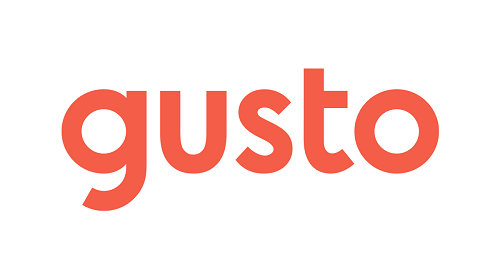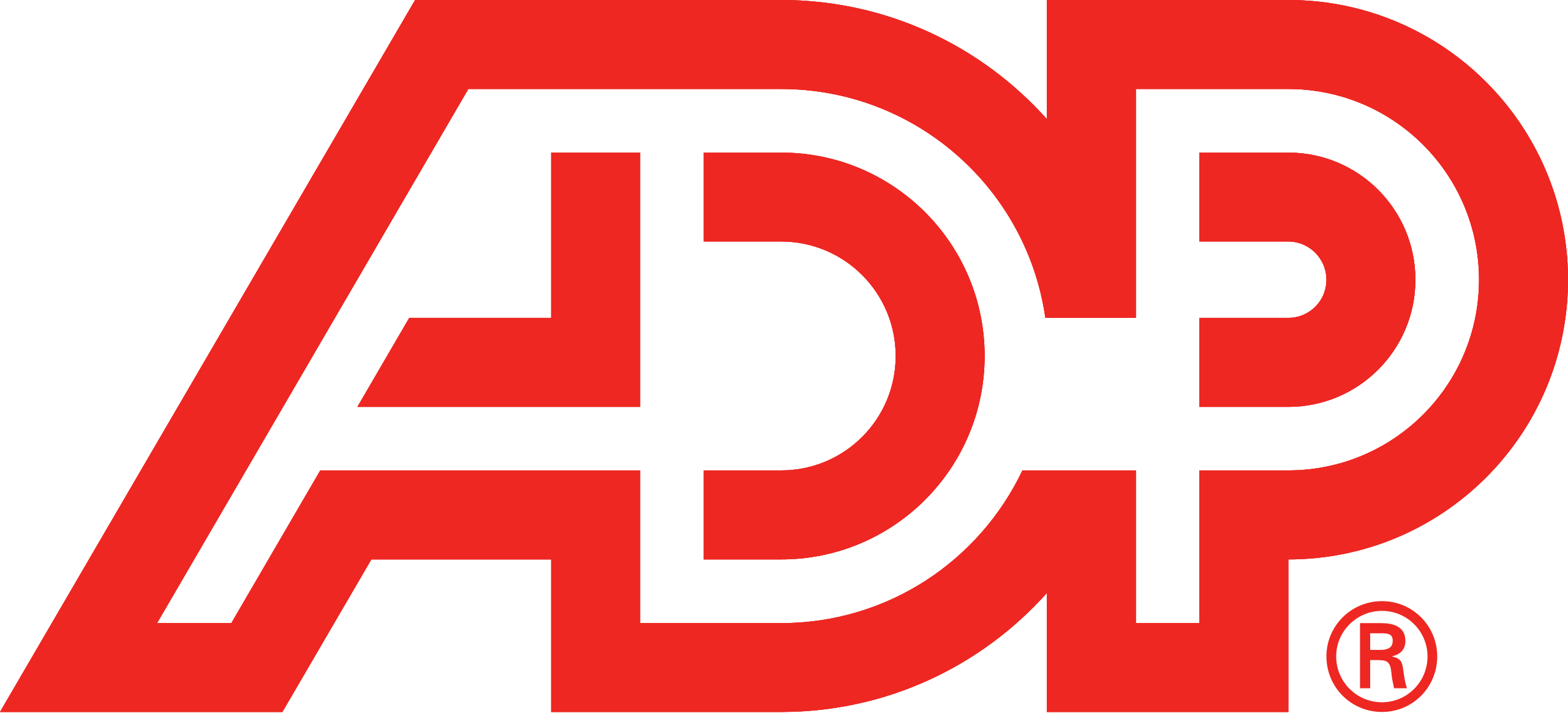Top 7 Payroll Softwares For Small Business in 2023


The world of business is constantly evolving, and so are the tools and services that support its operations. In 2023, small businesses are increasingly relying on streamlined solutions for payroll management. A reliable payroll software not only ensures timely and accurate compensation for employees but also helps businesses maintain compliance with tax regulations. In this article, we’ll explore the nine best payroll services tailored for small businesses in 2023.
What is Payroll Software?
Payroll software is a type of computer program designed to automate and streamline the process of calculating and managing employee compensation, including salaries, wages, bonuses, deductions, and taxes. It’s a tool used by businesses and organizations to ensure accurate and timely payment to their employees while also maintaining compliance with various tax and labor regulations. Payroll software helps simplify complex payroll processes, reduce errors, and save time for HR and accounting teams.
Read more: Payroll Trends that Will Shape the Future of Payroll Processing
What Are Core Features Of Payroll Services?
Automated Payroll and Payslip Distribution
The intricate process of monthly payroll entails gathering extensive data from diverse departments and individuals. Depending on your business structure, manual handling of this task can prove to be tedious or even unmanageable. Payroll software comes to the rescue by automating this process, saving time and enhancing precision. The chosen software should proficiently handle earnings, salary adjustments, bonuses, deductions, leave, and attendance, enabling seamless payroll processing with a single click. Moreover, it’s crucial to seek software that can automatically and securely dispatch payslips and tax documents to your workforce.
Statutory Compliance
Regardless of your business’s size, adhering to legal regulations holds paramount importance. Maintaining statutory compliance ensures your business operates within the bounds of the law. Opt for payroll software that can automatically compute key statutory elements like provident fund (PF), professional tax (PT), employee state insurance (ESI), labor welfare fund (LWF), and income tax. Look for software that empowers you to customize PF settings, allocate specific work locations to align with state regulations, generate structured reports for simplified tax filing, and seamlessly adapt to changes in tax laws.
Customizable Salary Components
With a workforce ranging from seasoned professionals to fresh recruits, catering to diverse compensation structures is essential for efficient payroll management, budgeting, and employee compensation. Effective payroll software should allow you to tailor different salary components to specific job profiles. For instance, field sales employees might require a higher fuel reimbursement limit compared to marketing professionals. The software should also permit saving these configurations as templates for future use.
Online Salary Payments
Look for payroll software with partnerships with reputable banks offering direct deposit services. This feature allows you to effortlessly transfer employee salaries to their bank accounts without leaving the payroll program. Alternatively, seek the option to input employees’ bank account details during onboarding, facilitating quick and secure salary transfers on payday.
Employee Self-Service Portal
A tight schedule and strict deadlines define payroll departments. The inclusion of an employee self-service portal in your payroll software streamlines the process. This portal enables employees to submit reimbursement proofs and income tax declarations online, mitigating the risk of document mismatch. Set deadlines and automated reminders to ensure timely submissions. The portal should also provide access to essential payroll documents such as payslips, tax worksheets, and Form-16, offering employees insights into their salary structure, tax obligations, and proof submission status.
Payroll Reports
Payroll reports play a pivotal role in budget analysis, governance, and tax filing. While evaluating payroll software, verify that the reports provide a comprehensive view of your organization’s payroll expenses through salary registers, payment summaries, and reimbursement data. The software should offer pre-formatted reports for simplified tax filing, generating reports like EPF-ECR for EPF returns, ESIC reports for ESI returns, and Form 24Q for quarterly Tax Deducted at Source (TDS) filing.
Leave and Attendance Management
Choose payroll software integrated with a leave and attendance module or seamlessly connected to a leave and attendance management system. The software should allow you to establish the organization’s leave policy, attendance cut-off cycles, and shift-based work hours. Integration with a biometric device ensures accurate clock-in and clock-out data. For larger workforces, the software should enable data retrieval from various work locations, empowering you to access this information effortlessly before processing monthly payroll.
Full and Final Settlements
Navigating employee departures can be challenging. However, the process should be seamless once a decision is made. The payroll software you choose should offer options to factor in gratuity, bonuses, commissions, outstanding leave encashments, and notice pay. Additionally, it should provide flexibility to process notice pay and send payslips to the employee’s preferred email address.
Spreadsheet Support
As you gather inputs from various sources for payroll processing, opt for software capable of integrating data from spreadsheets, the traditional data storage method in most organizations. An import feature should enable you to transfer data in large quantities, eliminating the need for manual creation of employee records. You should be able to upload bulk details about multiple employees, including salary specifics, profiles, bank account information, employment history, and more.
Read more: How Much Does Outsourcing Payroll Services Cost?
Security Features
User Roles and Permissions
While payroll data is confidential, collaboration among multiple departments is essential. The ideal payroll system should allow you to define roles for each department, ensuring unauthorized personnel cannot access sensitive data. User role settings and permissions enable the assignment of multiple roles and module-based access to staff from different departments, facilitating collaboration while maintaining control over private information.
Cloud Security
Since payroll involves storing sensitive employee information, prioritizing security is imperative. Choose a reputable vendor with a strong commitment to security measures to safeguard employee data. Look for features like two-factor authentication for added login security. The vendor’s compliance with International Security Standards, including ISO/IEC 27001 security certification, ensures top-notch protocols are followed.
Audit Trail Reports
The super administrator should be able to monitor payroll activities effectively. Opt for payroll software that includes audit trail reports, allowing administrators to track changes made to employee records. These reports should be easily generated for specified time frames, serving as valuable evidence during audits.
Usability Features
User Experience
Processing payroll, even for a single employee, is not a straightforward task, and not everyone possesses the expertise for it. However, your chosen software should offer user-friendly interfaces, requiring minimal or no training for staff and employees to navigate effectively.
Accessibility
Select cloud-based payroll software, providing access to information from anywhere with an internet connection and a suitable device. This enables you to access data remotely, even while traveling, enhancing convenience and accessibility. Cloud-based mobile apps allow employees to access announcements and view payslips regardless of their location.
Choosing the right payroll software demands careful consideration of these core features. Each element contributes to streamlining payroll processes, enhancing accuracy, ensuring compliance, and enabling efficient collaboration within your organization.
Read more: Top 10 Payroll Tips for Small Business Owners
The 7 Best Payroll Software of 2023
1. Gusto
Gusto provides three well-considered tiers tailored to the needs of small to midsize companies seeking a blend of payroll and human resources (HR) features, making it a top-notch comprehensive choice. Each plan encompasses comprehensive automated payroll services, suitable for a wide range of businesses based on their requirements.
Advantages:
- Cost-effective with excellent value proposition
- Unlimited payroll processing
- Capability for tracking Paid Time Off (PTO)
- Full-service payroll support available across all states
- Basic reporting features included in all plan tiers
Drawbacks:
- Next-day direct deposit option exclusive to Complete and Concierge plans
- Dedicated support restricted to Concierge plan subscribers
Gusto aligns with other payroll software solutions by offering options for direct deposit or checks to remunerate employees. It also handles the automatic tracking and filing of federal, state, and local taxes. What sets Gusto apart is its progressive approach to direct deposit convenience across its plan tiers.
Unlike reducing direct deposit benefits for lower-priced plans, Gusto enhances the immediacy of direct deposit as you ascend the plan hierarchy. For instance, direct deposit clearing time spans up to four days for the entry-level plan, while higher-tier plans enjoy next-day direct deposit capabilities.
Gusto’s Core plan, priced at $40 per month with an additional $6 per employee per month, positions itself as an exceedingly budget-friendly option for comprehensive payroll management. The Plus plan, costing $80 per month with an employee rate of $12, offers the added advantage of next-day direct deposit. To learn about Gusto’s Premium packages, which provide dedicated support and compliance alerts, you’ll need to connect with the company directly.
2. Paychex
Paychex Flex provides an expansive collection of over 160 reports, offering comprehensive insights into wages, taxes, turnover, and more. Among the array of reporting options available, Paychex stands out as our premier choice for reporting within payroll software due to its robust data capabilities. This software not only streamlines payroll tax filings and ensures compliance but also seamlessly integrates with vital programs such as accounting and benefits applications.
Advantages:
- Round-the-clock customer support
- User-friendly interface
- Extensible with HR add-on features
- Powerful reporting functionality
Drawbacks:
- Occurrence of hidden charges for setup and end-of-year tax documents
- Varied user reviews on the quality of customer support
Paychex presents a multitude of appealing features. Its user-friendly interface simplifies payroll setup and management, while also automating federal, state, and local payroll tax submissions. The suite offers a range of upgrade options that can cater to your business’s expansion needs. Notably, Paychex’s reporting capabilities could alone justify its monthly fee, making it a standout in this category. The inclusion of custom fields provides the flexibility to add additional data fields—a rarity among small business online payroll services.
While the Paychex Flex Essentials plan comes at a cost of $39 per month along with a $5 per employee fee, determining the precise expense for the more comprehensive Paychex Flex Select and Paychex Flex Pro plans necessitates obtaining a personalized quote based on your specific requirements.
The integration of an online payroll solution with your existing software ecosystem holds paramount importance. Paychex notably excels in this aspect by seamlessly integrating with popular accounting software like QuickBooks and Xero. Additionally, it boasts compatibility with various health insurance and benefits applications, time tracking and attendance software, as well as HR software—a crucial characteristic for enhancing overall operational efficiency.
3. QuickBooks Payroll
For those already utilizing QuickBooks for their accounting needs, QuickBooks Payroll presents itself as the simplest and most automated choice for payroll management. Its seamless integration with QuickBooks accounting software ensures a streamlined experience, particularly for QuickBooks users. The program’s user-friendly nature often eliminates the need for support, thanks to its comprehensive tutorials and knowledge base. Moreover, if additional assistance is required, a quick online search will yield numerous step-by-step guides.
Advantages:
- Swift and straightforward setup process
- Seamlessly integrates with QuickBooks accounting software
- Rapid direct deposit options available
Drawbacks:
- Considered less cost-effective for the value it provides
- “Time track on the go” feature absent in the lowest-tier plan
QuickBooks stands out for its user-friendly setup, particularly catering to individuals familiar with the QuickBooks ecosystem. The abundance of online resources, coupled with their comprehensive customer service, ensures that users can easily adopt their payroll services, regardless of their prior experience.
While QuickBooks offers a range of exceptional features, they come at a cost. The entry-level plan commences at $45 per month, with an additional $5 per person per month charge. The Premium plan, priced at $75 per month along with an $8 per person per month fee, expands its offerings to encompass HR support and a payroll setup review by an expert. QuickBooks’ Elite plan, priced at $125 per month with an additional $10 per employee per month fee, delivers 24/7 support and tax penalty protection.
4. ADP
ADP stands as one of the most renowned names in the realms of payroll and HR solutions. Its extensive brand recognition and years of industry expertise render it an optimal choice for sizable companies or enterprises poised for rapid expansion. Tailored for businesses on the growth trajectory, the lowest-tier plan encompasses comprehensive features like full-service payroll, direct deposit, reporting capabilities, and an employee self-service portal. Elevated tiers offer enhanced features and a broader spectrum of HR services.
Advantages:
- Scalability facilitated through a range of plan options
- Robust reporting tools, including customization capabilities
- Abundant HR add-on functionalities
Drawbacks:
- Non-transparent pricing structure
- Potential feature overload for small businesses
- Incurrence of multiple fees, including setup charges
ADP emerges as a prime choice for larger businesses, evident from its position amid primary competitors. While historically operating as a professional employer organization (PEO), ADP has transitioned to offer payroll services catered to small businesses. Opting for a payroll service that can accommodate your business’s growth trajectory is prudent, as it minimizes the need for future data migration. ADP’s ADP RUN service aligns with this notion, particularly suitable for businesses with fewer than 50 employees.
Regrettably, comparing ADP’s plan costs with other services isn’t straightforward due to ADP’s nondisclosure of plan pricing. Acquiring a personalized quote tailored to your business necessitates filling out forms, factoring in your specific requirements and employee count.
In our evaluations, quotes and setup fees for a 10-person business varied within the range of $150 to $200 per month. This places ADP in the higher price bracket compared to the other software options mentioned in this list. Setup fees spanned from $25 to $200, with representatives often offering to waive the fee upon immediate signup.
Please bear in mind that the information provided here reflects the state of affairs as of my last update in September 2021. To gather the most current and accurate details, it’s advisable to visit ADP’s official website or engage with their representatives directly.
5. Onpay
OnPay presents a user-friendly and cost-effective online payroll solution that is particularly well-suited for small businesses. Its transparent fee structure is a crucial advantage for budget-conscious small enterprises. The comprehensive full-service payroll functionality handles calculations and efficiently manages federal, state, and local payroll tax filings. However, it’s worth noting that the process of running and approving payroll is a manual step that remains.
Advantages:
- Absence of concealed fees
- User-friendly interface
- Commendable value in relation to the cost
Drawbacks:
- Lack of same-day or next-day direct deposit options
- Absence of automatic payroll submission
Initiating payroll setup in a new software can be time-intensive, but OnPay simplifies the process through its setup wizard. Following the outlined steps accurately should yield a smooth experience. Should you require assistance importing data from another payroll service, OnPay offers guidance and assures data accuracy.
Priced at $40 per month along with an additional $6 per person per month, OnPay’s cost might be slightly higher compared to alternatives like Workful and Payroll4Free. However, the added features you receive more than justify the price, rendering it our top recommendation for small business owners aiming to streamline payroll and human resources processes.
Beyond the comprehensive automated payroll services, OnPay goes the extra mile by including W-2 and 1099 worker filing at no additional expense. Furthermore, the platform offers an array of HR features to facilitate the hiring process for new employees. This encompasses functionalities like offer letters, e-signature support, automated onboarding procedures, and document storage. Such features, often offered as premium add-ons or confined to higher-tier plans by other providers, are seamlessly integrated into OnPay’s offerings.
It’s important to bear in mind that the information provided here is based on the state of affairs as of my last update in September 2021. To gather the most current and accurate details, it’s advisable to visit OnPay’s official website or engage with their customer support.
6. SurePayroll
SurePayroll is an online payroll solution designed to streamline payroll management for businesses of various sizes. It offers a range of features and services aimed at simplifying payroll processes, ensuring compliance, and providing businesses with accurate and timely payroll services.
Pros
- Payroll and HR services for niche industries
Cons
- No transparent pricing
SurePayroll was founded in 2000 and in 2011 became a wholly-owned subsidiary of Paychex. Its focus is on small businesses and household employees.
The downside to SurePayroll is that the company does not offer transparent pricing. Like with ADP, you’ll have to reach out to the company for a quote. Pricing varies depending on your industry.
Customer support has a good, but not great, reputation across third-party review sites. The company does offer support six days a week, Monday to Friday from 7 a.m. to 8 p.m. Central Time, and Saturday from 9 a.m. to 1 p.m.
- Cost: Contact SurePayroll for a quote
- Additional features: Pre-employment screening, white label services for accountants
- Free trial period: Yes—up to six months for small businesses
7. Payroll4Free
Payroll4Free stands out as an exceptional free payroll service, provided you’re willing to invest a bit of manual effort. It offers genuine free usage, albeit with some limitations. While functionalities like payroll tax filings and direct deposit payments require nominal payments, it remains an economical choice. Particularly beneficial for businesses with fewer than 25 employees, Payroll4Free presents an upgrade from traditional pen-and-paper payroll methods.
Advantages:
- Cost-free usage
- Low-cost options for tax filing and direct deposit payments
- Capability to manage both W-2 and 1099 workers
Drawbacks:
- Limited feature set
- Setup process relies heavily on manual input
Payroll4Free stands as a unique offering, providing all the essential administrative tools required for running payroll without a charge. While it necessitates manual input for various tasks, Payroll4Free streamlines calculations. The setup process involves manual steps, supported by a tool that guides you through entering the requisite details accurately. Although this approach introduces a degree of room for errors, such a concern is applicable to numerous payroll software solutions.
Payroll4Free’s usage incurs no fees unless you exceed 25 employees or require the platform to handle payroll tax filings. For the latter, a flat fee of $25 per month applies. If opting for direct deposit payments to employees, an additional $25 per month is levied. Alternatively, funds can be deposited into your account, allowing you to manually issue payments via check. In this case, considering check printing software might be advantageous. Even if you choose to avail these supplementary services, the expenses remain notably lower compared to the majority of other payroll service providers.
Takeaway
Payroll software helps businesses reduce manual errors, save time, enhance accuracy, and ensure legal compliance. It’s particularly beneficial for businesses with a significant number of employees or those facing complex payroll structures and regulations. By automating payroll processes, organizations can focus on more strategic HR and business tasks, improving overall efficiency and employee satisfaction.
To determine the best online payroll service for your current needs in 2023, consider factors such as the size of your business, your budget, the features you require (such as tax calculations, direct deposit, benefits administration, etc.), ease of use, customer support, and any integrations with other software you may be using. It’s also a good idea to read recent reviews and compare the offerings of different providers to find the one that aligns with your business requirements.
Consider Outsourcing Payroll Processing to Accounting Services Providers
Outsourcing payroll processing to accounting services providers is a strategic move that empowers firms to enhance efficiency, accuracy, and client satisfaction. By leveraging specialized expertise, technology, and scalability of outsourcing partners, accounting firms can focus on their core competencies and provide high-value services to clients. However, selecting the right vendor, prioritizing data security, and maintaining effective communication are essential to successfully harness the benefits of outsourcing while upholding the integrity of client relationships and service delivery.
Unlock the Future of Payroll Processing with Bestarion
As the business landscape evolves, so do the demands of efficient payroll management. Bestarion is here to revolutionize the way you approach payroll processing, offering a seamless, accurate, and hassle-free experience that empowers your business to thrive.
Join hands with Bestarion’s Outsourcing Payroll Processing services and embark on a journey towards enhanced efficiency, compliance peace of mind, and a renewed focus on your core business endeavors. Contact us today to experience the future of payroll processing – because your success is our business.







